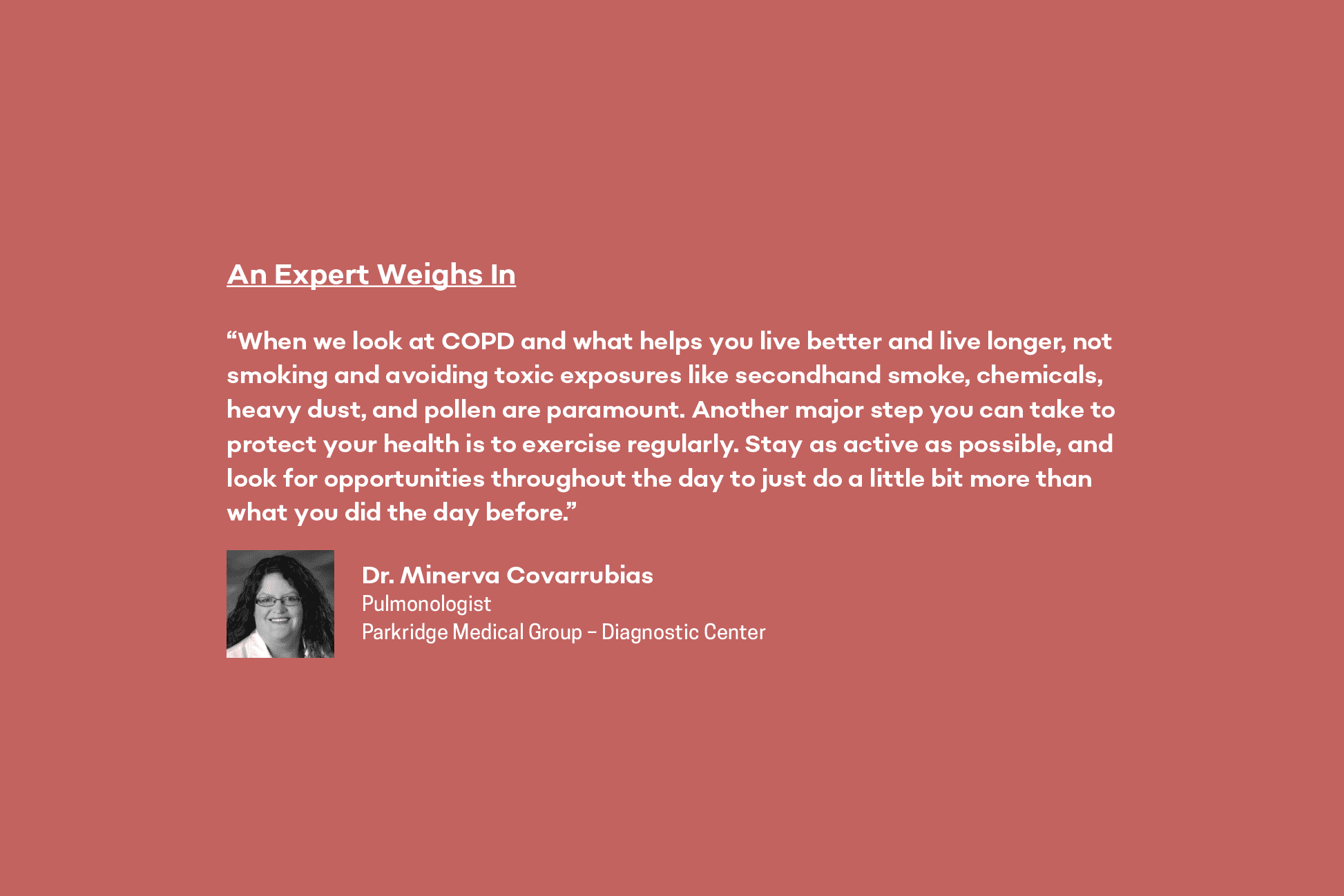The Facts on COPD
Chronic obstructive pulmonary disease, or COPD, is a life-threatening inflammatory lung disease that drastically interferes with airflow into and out of the lungs. The umbrella term encompasses several different lung issues, such as emphysema, chronic bronchitis, non-reversible asthma, and other diseases that cause progressive damage to the lungs.
The COPD Foundation reports that as many as 30 million individuals in the United States have COPD, and recent data from the Centers for Disease Control and Prevention (CDC) shows that here in Tennessee, as much as 12.3% of the adult population may suffer from the disease.
Once more prevalent in men, COPD has become more common in women over the last two decades. In fact, 58% of sufferers are women today, with common culprits considered biological makeup – women have smaller lungs – and the rise of tobacco usage in females.
COPD and Older Adults
Adults 65 and older are at an increased risk of developing COPD for numerous reasons. First and foremost, the lungs age as you get older, which results in structural changes in the airways and lung tissue that can lead to COPD. Beyond that, since it’s a progressive disease that takes years to develop, the longer a person has risk factors for COPD, the more likely they are to develop it.
Unfortunately, in addition to being at a greater risk of developing the disease, older adults are also more likely to suffer serious complications like heart problems, lung cancer, and high blood pressure.
Risk Factors
Smoking cigarettes is the number one cause of COPD. While not everyone who smokes gets COPD – less than 50% do – over 90% of people facing the disease today are either current or former smokers.
Smoking isn’t the only risk factor associated with the disease, though. Environmental factors like the inhalation of chemicals, dust, fumes, and secondhand smoke, along with exposure to coal or wood heat, can also lead to lung damage and increased risk of developing COPD.
Treating COPD
Early intervention can slow the progression of COPD and help prevent complications. For milder cases, smoking cessation may provide significant relief. At more advanced stages, inhalers that relax airway muscles and reduce inflammation are helpful, as are oral steroids. For those who cannot be sufficiently treated with medication alone, surgery may be the best course of action. HS


